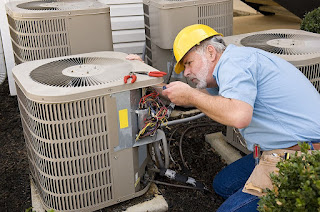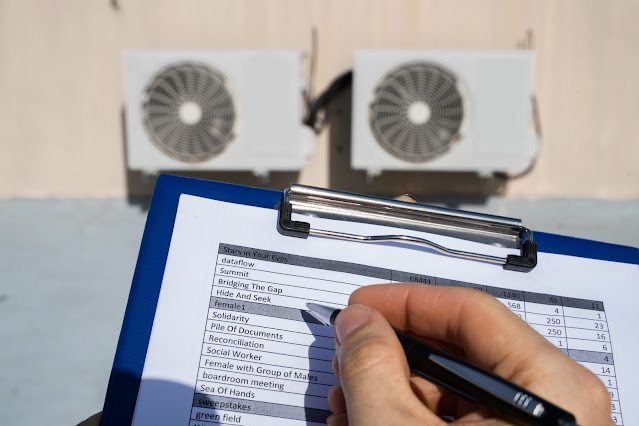AC On the Fritz? Discover Quick Fixes You Can't Miss!
Introduction
When the scorching summer heat hits, there's nothing worse than your trusty air conditioner suddenly deciding to go on the fritz. Don't sweat it! In this article, we'll explore some quick fixes that you can't afford to miss when your AC decides to act up. Say goodbye to sweltering days and nights as we dive into the world of air conditioner troubleshooting.
The Importance of a Well-Functioning AC
Before we jump into the fixes, let's briefly touch on why a well-functioning AC is essential.
Comfort and Convenience
An air conditioner provides the comfort and convenience of a cool and pleasant indoor environment, especially during the scorching summer months.
Health and Well-being
Beyond comfort, a properly functioning AC helps maintain indoor air quality and reduces humidity levels, promoting a healthier living space.
Troubleshooting Your AC Woes
Now, let's roll up our sleeves and tackle those AC problems head-on.
Check the Thermostat
Your thermostat plays a crucial role in regulating your AC's temperature. Ensure it's set to the desired temperature and on the cooling mode.
Inspect the Air Filter
A clogged air filter can restrict airflow, making your AC less efficient. Replace or clean it regularly to ensure optimal performance.
Clean the Condenser Coils
Dust and debris may collect on the condenser coils, impeding the exchange of heat. Gently clean them to improve cooling efficiency.
Check for Refrigerant Leaks
Insufficient refrigerant levels can result in your AC emitting warm air. Look for signs of leaks and have them repaired by a professional.
Examine the Fan Motor
A malfunctioning fan motor can lead to poor airflow. Make sure the fan is spinning correctly and lubricate it if necessary.
DIY Maintenance Tips
Keeping your AC in tip-top shape involves some DIY maintenance.
Trim Surrounding Vegetation
Ensure there's ample space around your outdoor unit. Trim any overgrown bushes or grass to maintain proper airflow.
Seal Duct Leaks
Leaky ducts can lead to cool air escaping. Seal any gaps or leaks in your ductwork to maximize efficiency.
When to Call a Professional
While DIY fixes can solve many issues, some problems require the expertise of a professional.
Refrigerant Recharge
If your AC is low on refrigerant, it's best to call a technician to recharge it properly.
Electrical Problems
Issues with wiring or electrical components should be left to a qualified electrician or HVAC technician.
Conclusion
In conclusion, a malfunctioning AC can be a real hassle during the summer months. However, by following these quick fixes and practicing regular maintenance, you can ensure your AC keeps you cool when you need it the most. Don't let the heat get to you; take action and enjoy a refreshing indoor environment.
FAQs
How often should I clean or replace my AC's air filter?
Ideally, you should check your air filter every month and replace it if it's dirty. In some cases, you may need to replace it more frequently, especially if you have pets or allergies.
Can I use any cleaning solution to clean my condenser coils?
It's best to use a specialized coil cleaner recommended by your AC's manufacturer. Using the wrong cleaning solution can damage the coils.
What should I do if my AC still doesn't work after trying these fixes?
If your AC remains problematic, it's time to call a professional HVAC technician. There might be hidden problems that necessitate the expertise of a professional.
Is it necessary to cover my outdoor unit during the winter months?
Yes, covering your outdoor unit during the winter can help protect it from debris and harsh weather. However, ensure it's properly ventilated to prevent moisture buildup.
How can I improve the overall efficiency of my AC system?
To enhance efficiency, maintain regular cleaning and maintenance routines, seal duct leaks, and consider upgrading to a more energy-efficient model if your current unit is outdated.
Remember, a well-maintained AC not only keeps you comfortable but also contributes to a healthier and more enjoyable indoor environment. So, don't wait for the next heatwave—take action now and keep your AC running smoothly!






